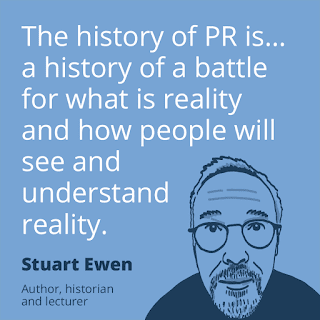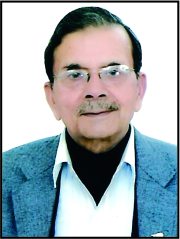Take Care of SHSTT
That is a perhaps an unfamiliar abbreviation, but that is the key to the way people perceive and judge things.
Our perceptions about people, things, products, and organisations are cumulative impact of the experience we have acquired through our five senses over the years.
Some of the hospitals, the south Indian restaurants, coffee, have distinct smells that can attract or repel you.
The sight of certain brands like Coca Cola, Lux toiletry, Pepsi, Pizza Hut, McDonald's, have been carefully honed by expert communicators to generate universal experience by managing their SHSTT, i.e. what every consumer can SEE, HEAR, SMELL, TASTE and TOUCH.
For different organisations different sensory elements may vary but one needs to audit one's own brand in the light of these five elements.
I remember that the UNI, the famous news agency, acquired the saying in the journalistic world in Delhi, "It may not be good at copy but serves good coffee".
A good restaurant or a hotel are the one where SHSTT, in their entire domain, matter. Right from the visual treat to the music that is played in their lobbies and toilets, to the comfort, the relaxing smells, and the food which is served, contribute entirely to the entire experience.
But service-oriented organisations or the NGOs have to take care and effectively manage the people's experience with their organisation.
It becomes all the more challenging in an NGO, because every member becomes a brand ambassador and must be knowledgable enough to project the vision, the mission and the story of their organisation.
Every Rotarian in Rotary International is the brand ambassador of this worldwide organisation. Therefore, it is essential that the public image is sustained through the controlled and effective management of all sensory experience for the members as well as all stakeholders in the community.
WHAT PEOPLE SEE:
Your personal conduct and the conformance to the international guidelines of Rotary visual identity. That also enhances the members' experience of their Club too. How the branding is executed in community events, and how it is represented in all communication. The personal behaviour in public can also impact the image. For instance, a Rotarian with a Rotary sticker on the car throwing out garbage from the window of his car on to the road, can bring in bad image for the organisation.
WHAT DO THEY HEAR:
Your elevators pitch. Every businessman and professional knows about one-minute pitch. What you have to say about Rotary and your Club, when you talk to non-Rotarians.
WHAT DO THEY SMELL
This may not look very significant but at times, smell of large quantity of screen printed material distributed to public could possibly be exuding a very repelling odour of ammonia. a smelly unclean washroom in the premises...a smelly unclean pantry...and a lot more could effect positive image.
WHAT DO THEY TASTE
Be careful about quality of food served to beneficiaries and guests on Rotary meetings and projects. Outsiders would carry their experience for a lifetime.
WHAT DO THEY TOUCH
Unclean tables and counters; dusty chairs; wet paint at a project site; greasy crockery or keyboards; are strictly no-no. Be careful.
People form opinion and perception about people and organisation on the basis of their personal experience and do not hesitate from voicing it out while in a group which can have damaging effect. So take care of every little detail







